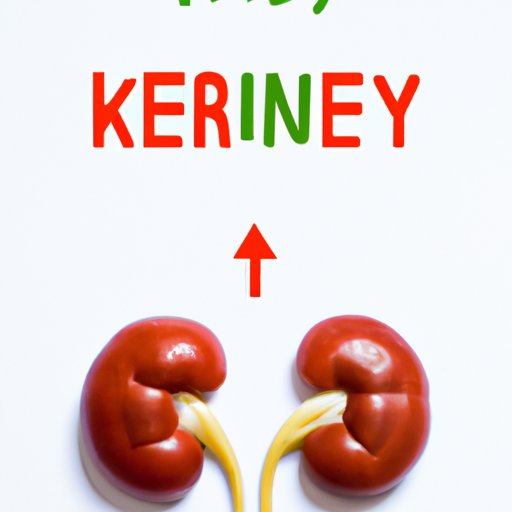
Introduction
Kidney health is an essential component of overall well-being, yet many people may not consider its importance until faced with a health concern. One surprising question that many people may wonder about is how many kidneys they really need. In this article, we will explore the truth about kidney health, including common misconceptions, conditions that can impact kidney function, ways to keep your kidneys healthy, and treatment options for serious kidney conditions.
The Surprising Truth: Do You Really Need Both Kidneys?
It is a common belief that having two functioning kidneys is essential to maintain health. However, this is not necessarily true. In fact, a person can lead a healthy life with just one functioning kidney. This is because the kidneys have a remarkable ability to compensate and adapt to changes in function. In some instances, people may be born with only one kidney or may have one removed due to injury or disease. In these cases, the remaining kidney is able to handle the workload of two.
Furthermore, having one healthy kidney is better than having two poorly functioning kidneys. Conditions such as chronic kidney disease (CKD) or end-stage renal disease (ESRD) can seriously impact kidney function, leading to the need for dialysis or a kidney transplant. In these cases, having one healthy kidney is essential to maintain quality of life and overall health.
Kidney Donation: How One Can Save Lives By Giving Away An Organ
Kidney donation is a life-saving act that can have a tremendous impact on those in need of a transplant. Each year, thousands of people die waiting for a kidney transplant. Becoming a kidney donor is a way to help alleviate this need and save lives.
If you are interested in becoming a kidney donor, there are several ways to do so. The most common method is to donate to a loved one or friend in need of a transplant. However, there are also ways to donate anonymously through various organizations. In order to become a donor, you will need to undergo a series of physical and psychological evaluations to ensure that you are a suitable candidate.
Many people have concerns about kidney donation, such as the impact on their own health or the financial costs. However, the process is generally safe and carries minimal risks. Additionally, the costs of testing and transplant surgery are typically covered by the recipient’s insurance.
Common Kidney Diseases That Can Affect Your Health
There are several conditions that can negatively impact kidney health, including chronic kidney disease (CKD), polycystic kidney disease (PKD), kidney stones, and urinary tract infections (UTIs). These conditions can be caused by a variety of factors, such as genetics, lifestyle choices, and chronic health conditions.
Early detection and management of kidney disease is essential to maintain long-term well-being. This includes regular kidney function tests, monitoring of blood pressure and blood sugar levels, and lifestyle changes such as maintaining a healthy diet and staying hydrated.
Maintaining Optimal Kidney Health: From Diet to Lifestyle Choices
There are several ways to promote optimal kidney function and prevent common kidney problems. One of the most important factors is diet. A diet high in fruits, vegetables, whole grains, and lean proteins can help maintain kidney function and prevent conditions such as CKD and PKD.
It is also important to stay hydrated and limit consumption of alcohol and sugary drinks. Regular exercise and stress reduction techniques such as yoga and meditation can also promote overall kidney health and well-being.
Kidney Failure: Symptoms and Treatment Options
Kidney failure is a serious condition in which the kidneys are no longer able to filter waste and excess fluid from the body. Symptoms include fatigue, nausea, swelling, and decreased urine output. Treatment options for kidney failure include dialysis or a kidney transplant.
Traditional treatment options such as dialysis can be time-consuming and come with potential risks such as infections and fluid imbalances. Alternative treatments such as home hemodialysis and peritoneal dialysis may be options for some individuals. Additionally, kidney transplant is a viable option for some patients with kidney failure.
Conclusion
Overall, maintaining optimal kidney health is essential to overall well-being. From maintaining a healthy diet, staying hydrated, and regular exercise to monitoring kidney function and seeking treatment for kidney disease, there are many ways to promote healthy kidney function. Additionally, becoming a kidney donor can have a tremendous impact on those in need of a transplant. For more information on kidney health and donation, visit the National Kidney Foundation or speak with your healthcare provider.




